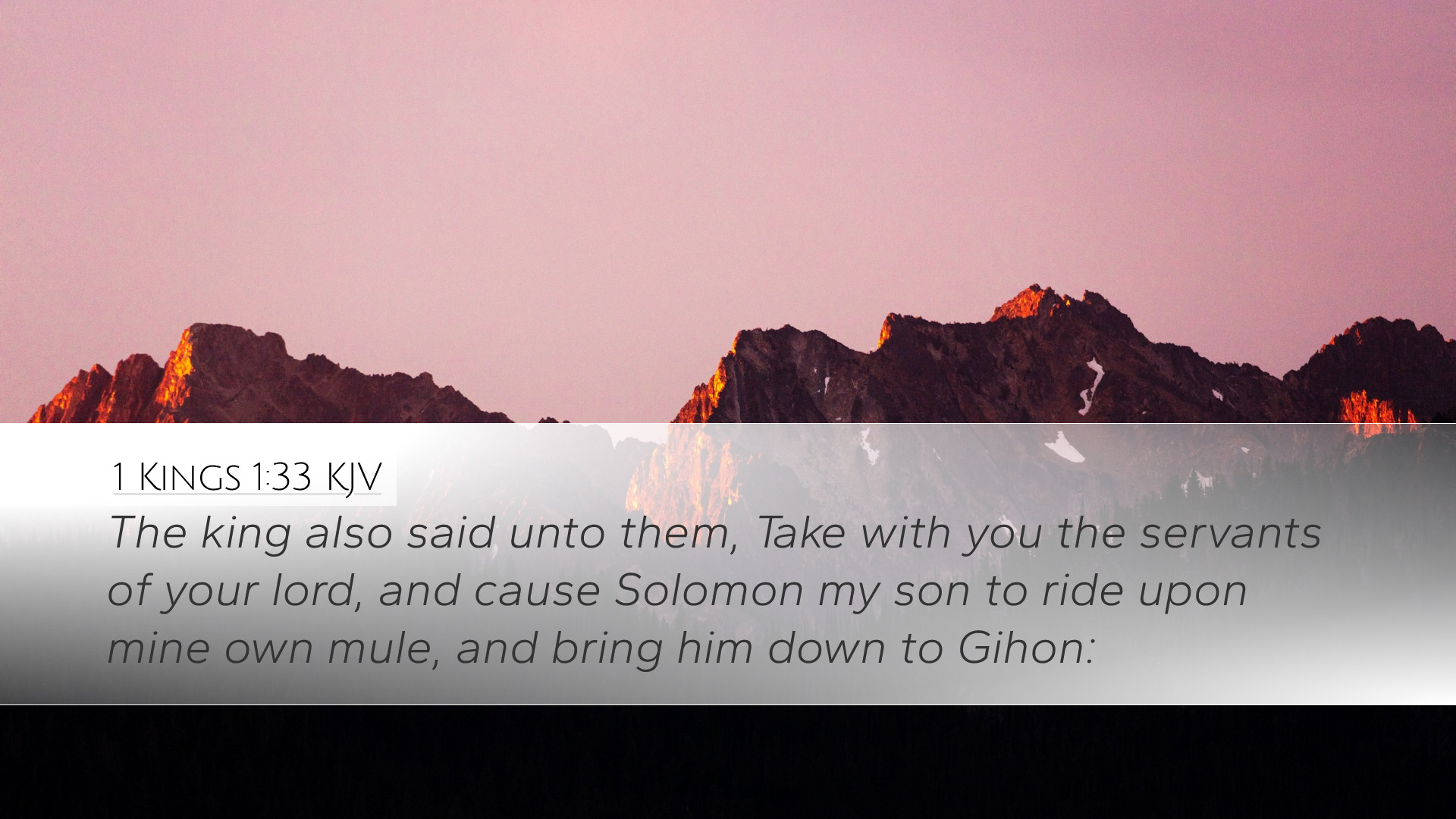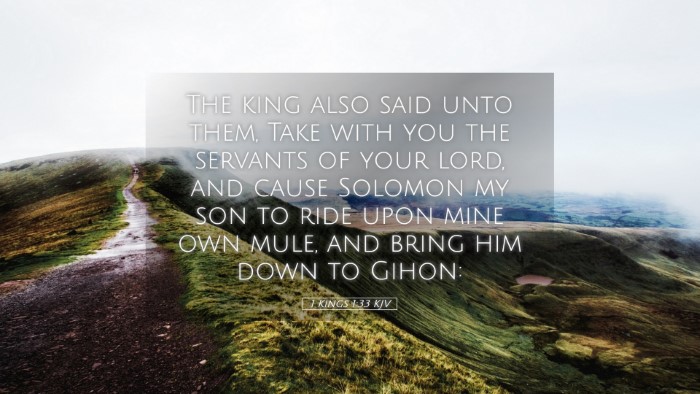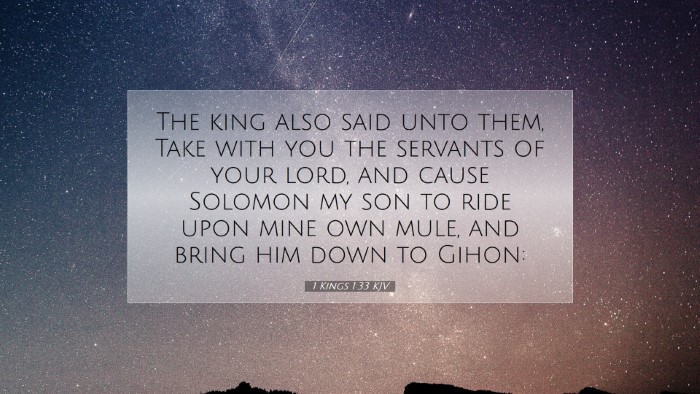Commentary on 1 Kings 1:33
Verse: "The king also said unto them, Take with you the servants of your lord, and cause Solomon my son to ride upon mine own mule, and bring him down to Gihon."
Contextual Background
In the context of 1 Kings 1, King David is at the twilight of his life, facing the reality of succession. The kingdom of Israel, following David’s long reign, is fraught with tension, largely pertaining to who would ascend to the throne. Adonijah, one of David’s sons, has declared himself king, causing a deep division among David's offspring and followers.
Interpretation and Analysis
In this verse, we observe King David's deliberate act of affirming Solomon as his chosen successor. The significance of this moment cannot be overstated:
-
Royal Authority:
By instructing his servants to parade Solomon on his own mule, David is providing a public declaration of Solomon's right to kingship. Mounting the king's mule is a symbolic gesture representing authority and legitimacy. Albert Barnes notes that this act of utilizing the king's mount signifies a clear transmission of royal power from David to Solomon.
-
Public Support:
Bringing Solomon to Gihon, a prominent location, presupposes the gathering of the people. This public display aims to rally support for Solomon, contrasting the private proclamations made by Adonijah. Matthew Henry emphasizes the strategic nature of this act as David seeks to unify the kingdom around Solomon's claim to the throne.
-
Divine Mandate:
This act reflects David’s adherence to the divine promise that Solomon would succeed him, as revealed in 1 Chronicles 22:9-10. Adam Clarke notes that the public elevation of Solomon serves as a fulfillment of that promise, ensuring that the transition of leadership occurs under the guidance of God’s will.
Theological Implications
This passage opens discussions about divine sovereignty and human agency in the establishment of leadership. The act of David, while politically motivated, also intersects with God's providence. The careful orchestration of events reflects a divine plan that transcends human ambition:
-
God’s Sovereignty:
David's actions demonstrate a human acknowledgment of God's chosen path, recognizing that true authority lies in divine selection rather than mere human endeavor. Clarke mentions that spiritual legitimacy often involves following God’s predetermined plans.
-
Legacy and Succession:
David’s choice of Solomon raises vital questions about legacy. How do leaders prepare their successors? Pastoral applications can be drawn on the importance of mentoring and preparing the next generation for leadership roles within the church and community.
-
Unity in Diversity:
Furthermore, this chapter highlights the theme of unity in a time of potential division. The church today faces similar challenges - fostering unity among differing factions is crucial. Henry points out that David's public act serves as a reminder that God's plans often come to fruition even amidst human discord.
Conclusion
1 Kings 1:33 encapsulates a pivotal moment in Israel's history, rich with themes of authority, divine selection, and the necessity of public affirmation in the transition of power. For pastors, scholars, and students, this verse offers profound insights into leadership's sacred dynamics and the importance of aligning with God’s will for kingdom growth. The lessons drawn from King David's actions resonate through time, reminding contemporary believers of their roles within their spiritual communities and the divine orchestration of God's plans.


